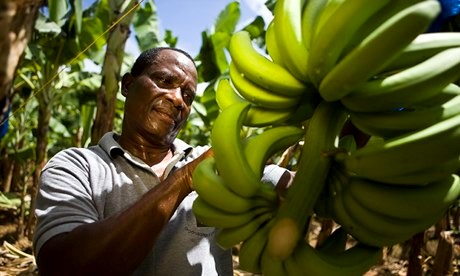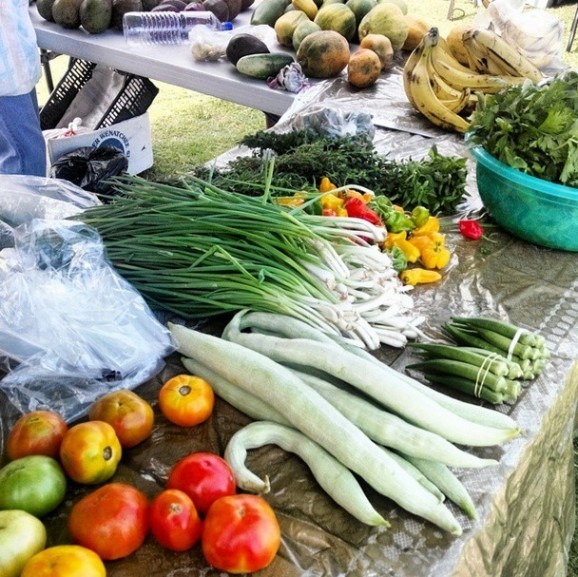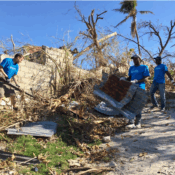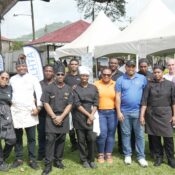VACH Case Study
VACH Case Study

BACKGROUND:
In Saint Lucia the majority of hotels import most food products from other countries, including fruit and vegetables. Even when a facility is buying fresh produce from suppliers locally often the product has originated from an imported source. With 60-70% of sourced product coming from imports the local agricultural produces were not effectively penetrating the local marketplace within the hospitality sector.
In 2014 the SLHTA (Saint Lucia Hotel & Tourism Association) took on the challenge of trying to understand the breakdown in the local supply chain not being the first choice. SLHTA organized collective meetings between the Ministry of Agriculture, approx. 80 farmers (representing both individual producers and some small co-ops) along with chefs and purchasing agents from the hospitality industry.
The stakeholder meetings revealed primarily that there was no commonly understood information flow about what is available and from who locally. There was also equal amazement at the variety and abundance of produce being produced locally. Clearly there was an opportunity to bridge the gap between producers and consumers of agricultural produce in Saint Lucia.
INITIATIVE:
In 2016 we struggled with the problem of creating a vibrant and effective linkage program that would unite agricultural producers directly to a market place within the hospitality sector. This was needed as the preexisting format of a marketing board and or ad hoc connections were not working and sadly the best of produce and variety availability within the market place was poorly communicated and as a consequence the value of transactions were not being maximized by the farmers.
WHAT WAS DONE?
 After an active brainstorming session we hit on the idea of a Virtual Agricultural Clearing House (VACH) program. We realized that both the farmers and chefs all share a common communication platform via their respective cell phones. We utilized the Digital WhatsApp platform and created two groups namely agricultural producers and chefs through which they intercommunicate. After inception the two groups of over 100 producers and 60 chefs quickly grew and now over 300 messages are exchanged daily creating an active and successful linkage platform for produce exchange.
After an active brainstorming session we hit on the idea of a Virtual Agricultural Clearing House (VACH) program. We realized that both the farmers and chefs all share a common communication platform via their respective cell phones. We utilized the Digital WhatsApp platform and created two groups namely agricultural producers and chefs through which they intercommunicate. After inception the two groups of over 100 producers and 60 chefs quickly grew and now over 300 messages are exchanged daily creating an active and successful linkage platform for produce exchange.
PROGRAM RESULTS:
- Chefs are alerted to the freshest of available products daily.
- Produce can be bartered for by the chefs which ensures the best price being received by the producer
- The need to sell to and buy from a marketing board has been eliminated
- More profit is being retained by the producers as they now can sell directly replacing the middleman
- Greater diversity of locally available products as chefs and producers are collaborating to grow locally what was traditionally imported
- Spoilage has reduced by about 15% as quick direct sales are now achievable for produce at its freshest.
- Delivery and receipt of produce has dramatically improved.
“The Virtual Agricultural Clearing House now allows me to get the freshest and fastest food in St. Lucia allowing me as a chef to work with ingredients at the peak of their quality”
Chef Juan Bochenski Jade Mountain Resort
Supplies being produced and traded locally within this program include but are not limited to: Bananas, Mangoes, Papaya, Soursop, Golden Apples, Water Melon, Oranges, Limes, Lemons, Guava, Plantain, Yam, Dasheen, Tomatoes, Breadfruit, Avocado, Lettuce, Cucumber,  Chinese Cabbage, Carrots, Mushrooms, Honey etc…
Chinese Cabbage, Carrots, Mushrooms, Honey etc…
Over the last 2 years the program has continued to grow – there has been a far greater dependence on local versus imported produce and imported produce for the hospitality sector has decreased by approximately 15% reducing food miles and the subsequent greenhouse gas emissions.
The above is one of the best examples of how the digital age has allowed us to create this program with all the extended benefits both to producers and the hospitality industry
Recent Posts
Tags




